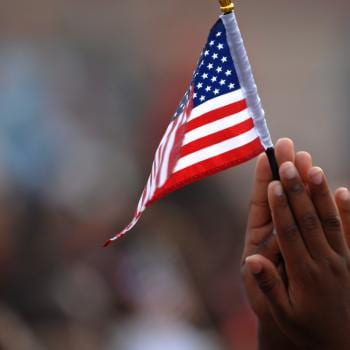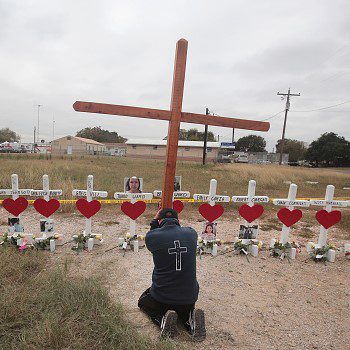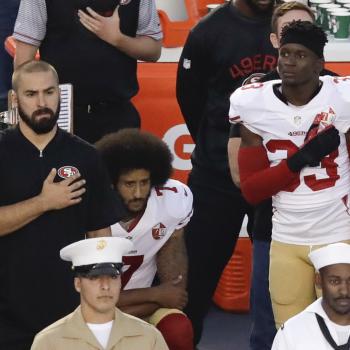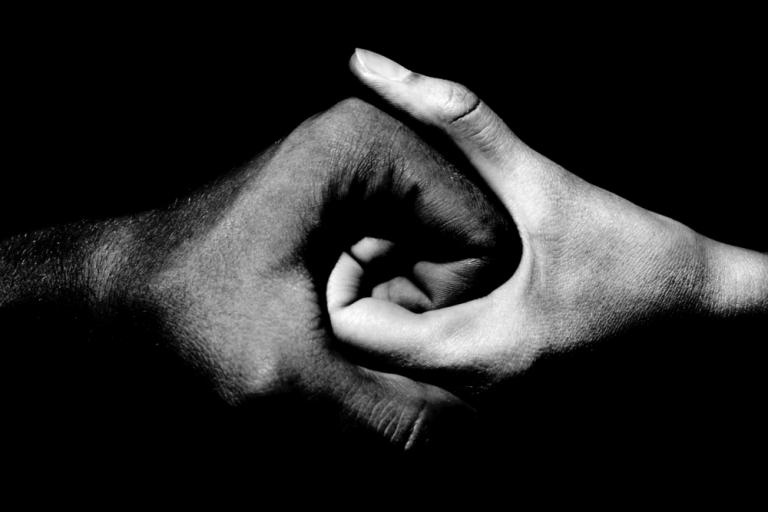By Christine Wicker.
American presidents routinely call for six national prayer days each year; three are coming up to commemorate 9/11. That’s far more than the great majority of American presidents would have approved. But as the number has increased, a change has occurred that wouldn’t have surprised early Baptists or Quakers at all. The thunder that once accompanied such proclamations has been stilled. The great Jehovah, dispenser of blessings and punishment, now seems more like a benign uncle we’re nice to acknowledge once in a while.
President Abraham Lincoln’s 1861 call for a Day of National Humiliation, Prayer, and Fasting speaks to a worldview that has almost utterly vanished, a way of thinking that now exists only on the far outer fringes of public discourse. Lincoln demanded a brand of repentance so intense and humble that it went by the name of humiliation. He didn’t use the word figuratively. In his 1864 Thanksgiving proclamation, he advised Americans to “get down in the dust.”
A year earlier, he’d proclaimed a fear that would today cause him to be ranked among the country’s rightwing nuts. He said that “the awful calamity of civil war which now desolates the land may be but a punishment inflicted upon us for our presumptuous sins, to the needful end of our national reformation as a whole people…. we have vainly imagined, in the deceitfulness of our hearts, that all these blessings were produced by some superior wisdom and virtue of our own. Intoxicated with unbroken success, we have become too self-sufficient…”
Contrast those words with those of another wartime president and one of our most avowedly religious Commanders in Chief—evangelical George W. Bush. His 2005 Thanksgiving proclamation declares: “We give thanks to live in a country where freedom reigns, justice prevails, and hope prospers.”
Had the country improved that much? Or has the God we address become less exacting?
No other president was as eloquent or as fervently self-abasing as Lincoln, but the idea that we’d better pay close attention to what a fearsome God might and might not like is quite evident in early presidents’ prayer day proclamations.
When George Washington declared the first national day of thanksgiving, he advised Americans to “beseech Him to pardon our national and other transgressions.” John Adams and James Madison both called Americans to days of “fasting, humiliation, and prayer” expressing fear that an angry God might punish the country. Adams was at odds with France and in a bit of a panic when he called upon Americans to humbly “acknowledge before God the manifold sins and transgressions with which we are justly chargeable as individuals and as a nation.”
It is words such as “justly chargeable” that give the early presidents’ proclamations a stern rectitude that seems absent in modern presidents’ words. Adams was also bolder about his self-interested intent than moderns might be, making it clear that his goal was forgiveness tied to a continuation of Divine blessings. Washington had gone even a step further, asking for special blessings on the countries that were favorable to the United States.
Early presidents were not only more worried about national sins, they were also much more nervous about keeping religion and the state separate, which may in itself speak to the diminishing power of religion.
Madison regretted ever having called for national days of prayer, saying that such proclamations “seem to imply and certainly nourish the erroneous idea of a national religion.” Thomas Jefferson refused to ask for a national day of prayer or thanksgiving, and for forty-five years presidents followed his lead. In 1832, when pastors and political leaders responded to a widespread cholera epidemic by asking the country’s first Presbyterian president, Andrew Jackson, to proclaim a day of prayer and fasting, the president refused saying it would “transcend the limits prescribed by the Constitution” and threaten freedom of religion. Although he affirmed his own belief in prayer and said that churches had a duty to declare their own days of prayer, he was widely reviled as stupid and ungodly.
It took the death of a president and a civil war to break the ban. President John Tyler set aside a day to honor President William Harrison after his death, recommending that Americans use the day for prayer and repentance. Lincoln first asked for a national day of prayer on April 12, 1961 when Confederates fired on Fort Sumter and continued calling for such days through the war. Other presidents followed his lead but most declared only one day, Thanksgiving. Harry Truman, who established the National Day of Prayer in 1952, declared numerous days of prayer, but Dwight Eisenhower went back to just Thanksgiving. With the exception of Richard Nixon, every president has taken up John F. Kennedy’s inclusion of Memorial Day as a national day of prayer. George W. Bush first called for one day of prayer for 9/11 and the next year added two more days.
As time goes by, it’s begun to seem almost as though presidential prayer-day proclamations work harder on proving their right to exist. References to hallowed tradition seem more abundant. Phrases such as “Americans have always” and “It has long been a tradition….” begin to appear more often, and more verbiage begins to be directed to the distant, rather than the immediate, past.
The sense that God is actively and directly at work in the world isn’t as strong as it once was, but neither is the sense that he can be manipulated to do our will. Thanksgiving and goodwill are popular themes. Tolerance and diversity are often advised. The God modern presidents call on is not nearly as demanding as he once was, but he’s not as punitive either.
Early presidents routinely expressed anxieties rarely heard in modern political discourse or even in public prayers. Washington asked that Americans pray to be preserved from “the arrogance of prosperity.” “God-fearing” was a term used by Benjamin Harrison in 1892, William Howard Taft in 1912, and Calvin Coolidge in 1925. As for days of prayer, fasting, and humiliation, it’s been almost a hundred years since Woodrow Wilson became the last president to call for one of those.
Christine Wicker is an author and former Dallas Morning News religion reporter. This article was made possible through a grant from the Social Science Research Council’s New Directions in the Study of Prayer project through the John D. Templeton Foundation.












